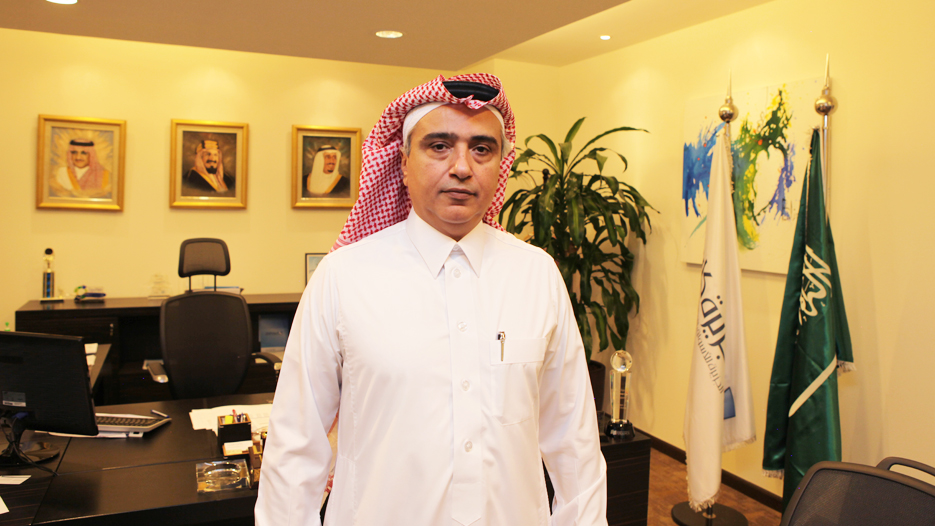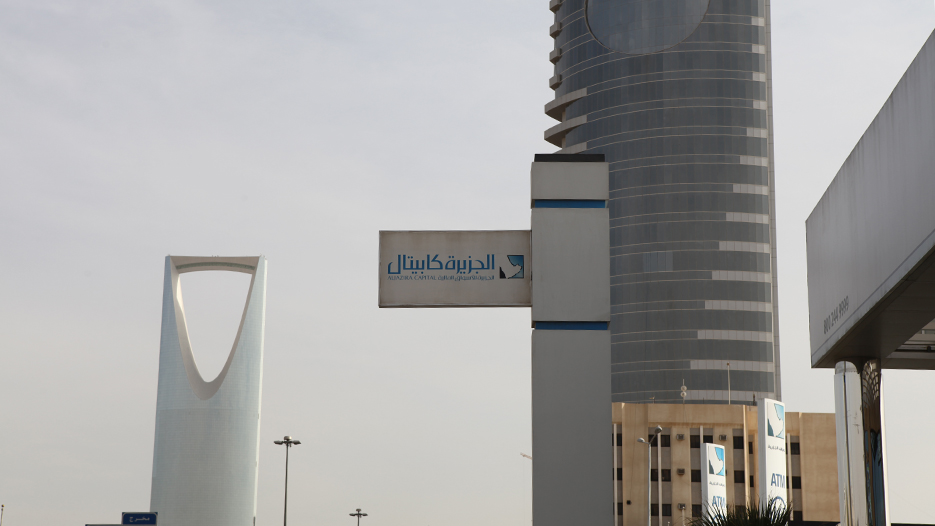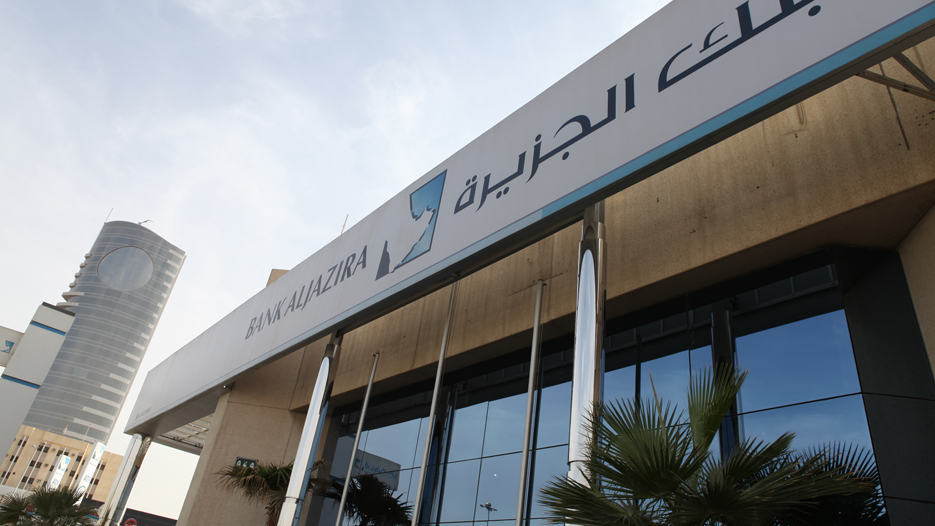Outlook for the capital markets in Saudi Arabia by Aljazira Capital
Public debt in Saudi Arabia is among the world’s lowest, with a gross Debt-to-GDP ratio of less than 2% in 2014 and is expected to be around 6% by the end of 2015. The transportation mega projects will lead to economic activity and growth, plus the hospitality projects around Mecca and Medina.
Interview with Ziad Tarek Abdullah Aba Al-Khail, Managing Director and CEO of AlJazira Capital, Saudi Arabia

In your opinion, what is the outlook for the capital market in Saudi Arabia?
The outlook for the capital markets is bright. Several developments indicate that Saudi Arabia has diversified beyond just oil. The Kingdom has vast untapped reserves of minerals – companies like Ma’aden and other similar companies in the northern region have invested over SAR 130 billion in the mining sector. The sector could become one of the fastest growing sector in the economy.
Moreover, the Kingdom is focusing on its insurance business; insurance represents 1% of GDP, which is low in comparison to developed countries. While some insurance companies remain unprofitable, many have started to become profitable. The insurance sector is poised to become one of the growth stories in the economy.
In addition, the new initiatives within the housing market in Saudi Arabia by the government will eventually create growth opportunities for cement, construction and real estate sectors.
Finally, the market saw the introduction of qualified foreign financial institutions (QFFIs) four months ago. After a slow start, we expect the activity to increase, and this is just the start of a wave of investments from outside the Kingdom that will come in preparation for the MSCI inclusion time frame of 2017-2018.
Can you describe the key challenges and opportunities associated with the current economic cycle?
The current valuations of listed companies are at historic lows. Of course, some of the players in the petrochemical and telecom sectors have declined in profitability, but Aljazira Capital believes that when this cycle turns and the market enters the next profit-growth cycle, there will be rapid increases in equity values. The most promising sectors are insurance and retail.
The country has a young population – about 60% of the population is under the age of 30. The late King Abdullah introduced the King Abdullah Foreign Scholarship Program, which has been continued by King Salman, so there are over 207,000 Saudis studying abroad. A lot of them have actually introduced new innovations and technologies around the world. When these students return to Saudi Arabia, a new wave of innovation and entrepreneurship will ensue in sectors that were not existent in the Kingdom before.
Public debt in Saudi Arabia is among the world’s lowest, with a gross Debt-to-GDP ratio of less than 2% in 2014 and is expected to be around 6% by the end of 2015. The transportation mega projects will lead to economic activity and growth, plus the hospitality projects around Mecca and Medina.
Experts predict that by 2020 the Umrah will generate more than SAR 47 billion – a very significant increase by a non-oil sector.
The challenges are numerous. Oil prices have had an impact on how Saudi Arabia structures the budget and fiscal policies. The geopolitical unrest around the Kingdom in neighboring countries continues to create uncertainty. The lack of income diversification in the Kingdom (something that the government is working on right now), and the weak private sector job creation are still in existence; however, these challenges have been under the eye of the government for the last few years. There are new laws and regulations that ensure more active private sector involvement.

How would you characterize your investment strategy? How do you manage risk?
Aljazira Capital is a customer-oriented company. The client is in the center of our strategy. We try to do what is best for our clients. The company studies various markets and asset classes around the world, and try to have a basket of investment opportunities tailored to each individual client.
As far as risk management is concerned, our risk management division within the bank ensures that the risks are well.
Given the spending or expenditures and low oil prices, the IMF has recently issued a report that Saudi Arabia is heading toward bankruptcy in 2020. What do you think about this? Are such reports over-exaggerated?
The exaggeration is beyond belief. The price of oil has only been down for 7-9 months. There are economic cycles and oil cycles. The Kingdom has very low debt-to-GDP ratio of around 2-6%, which is one of the lowest in the world. The economic activity is positive due to many mega projects that create value (economic and employment).
In addition, the government is re-evaluating certain projects and there should be a recovery in oil sooner or later – it may not go back to US$100, but it may go back to US$75 at some point in the medium term. Any responsible government would look at its revenues and expenditures, and act accordingly.
The public sector owns all of the assets, so they can privatize a lot of industries.
There are many tools that the government could use to fight the recession. The drop in oil prices is a positive development, as it forces the economic players to be more stringent in how they carry their affairs. In the good times, you need to prepare of the bad times. Now that the bad times have come, we cannot only weather it, but we will come out stronger from it.
What are the three most important challenges for Saudi Arabia?
The dependency on oil is a challenge – 81% of the exports are oil-based. The employment of Saudi citizens – while the government has had major initiatives over the past couple of years, there will be a lot of students that will be coming back from outside and the youth will need to be put to work. This is a challenge that will be faced by the government. And like everybody else, global terrorism and regional conflicts around us pose economic challenges.
Do you expect a possible upcoming economic crisis in the Kingdom?
The expected economic crisis may or may not come, and it may come tomorrow or in five years. The Kingdom always acted responsibly and always tried to be a solid partner when providing energy. The Kingdom will continue to work with the world to make sure there is stability in the world economy.
How would you characterize your strategy? What are the strategic goals that you want to achieve in order to maintain the market leadership?
Aljazira Capital has been the number one broker in Saudi Arabia for over 10 years. Technology has actually propelled the company to this level. The company controls 25% of internet trading in the Kingdom. The innovative trading platform is developed in-house. To continue innovating, the company is unveiling new HTML5-based products. This technology allows for touch screen and many other unique features. The strategy is to maintain market leadership. Aljazira Capital is also diversifying into asset management. The company has increased the number of funds, classes, and regions on offer. Concurrently, we are developing our investment banking business, which we believe will grow in the Kingdom as more and more companies go public and restructure. Of course, we have one of the best research teams in the Kingdom, and provide and disseminate research all over the world.

Can you track the performance of your funds? What sort of assets do you invest in? Where do you see value?
Over the past two years, our funds have consistently ranked within the top three funds kingdom wide. From an asset-class point-of-view, we have an emerging market fund so we have exposure funds to Asia, Europe, US, and the BRIC countries. The company offers a full set of asset classes based on client’s risk tolerance. Other asset classes are real estate and Murabaha. Aljazira Capital owns part of Takaful insurance company. We developed fund-of-funds for the insurer to allow clients that are investing in life insurance to invest in these funds in order to mitigate their risks and control their fluctuations.
Where do you see the value and the services you offer? Would you like to focus more on asset management in investment banking or brokerage? Where do you see the cash cows and the rising stars?
The brokerage is the most important business for the company. In 2006, the company generated SAR 2 billion. This is where the equity was built, being invested in other lines of the business. The brokerage is sensitive to market sentiment. To mitigate the fluctuations the strategy is to focus on asset management, and reinvest the revenue from these services. In 2015, the assets under management grew from SAR 700 million to over SAR 4 billion. Investment banking is an area where the company wants to grow. Aljazira Capital has already made a few investment-banking deals in the insurance sector.
This is a very competitive sector, and there are many companies offering similar services in the market. What makes you different and stand apart from other competitors?
Aljazira Capital has decent capital, an excellent investment banking team, and is affiliated with one of the key banks in the Kingdom. Aljazira Bank is one of the oldest banks in the Kingdom.
In 2007, the bank became Sharia-compliant. The change was extremely beneficial, and it changed the bank from a loss-making bank to a very profitable institution. The sharia-compliant component is extremely important for Saudi retail customers.
Is the new HTML5 application a unique product to the market?
Aljazira Capital is the leader in technology. The previous platform was Java-based and competitors tried to copy it. Building on the past successes, the introduction of the new application trading in HTML5 will give the company an additional edge. The technology allows touch screen interactions, works on various browsers and across multiple devices. When we introduce a product for trading, we always try to have some unique features because better technology is our competitive advantage.
Who is your new target demographic?
It is a combination – active traders and young people. The plan is to satisfy the needs of traders and to diversify the sources of revenue in the brokerage business (like the 90-10 rule). The mass market – someone who opens an account and trades 5-10 times a year – this is our target client. You can actually cost-sell and educate these people on how to invest.
In terms of the value of the brokerage or yearly transactions, what is your market share?
Our market share stood at around 17% in 2015, which is number one in the market. In 2007, the company used to control almost 23% of the market, before the inclusion of the other 11-12 APs at the time. Our current target is 20%. In addition, the conversion to Sharia-compliant institution accounted for the 4-5% market share loss.
Where do you see yourself in 5 years?
Aljazira Capital will maintain the market leadership in brokerage and will rank amongst top five asset managers in Saudi Arabia. Diversifying into asset management will provide stability in the revenue stream, and that means we succeeded in offering the right asset classes to our clients. Currently, the company has jumped four places to 8th position in terms of assets under management.